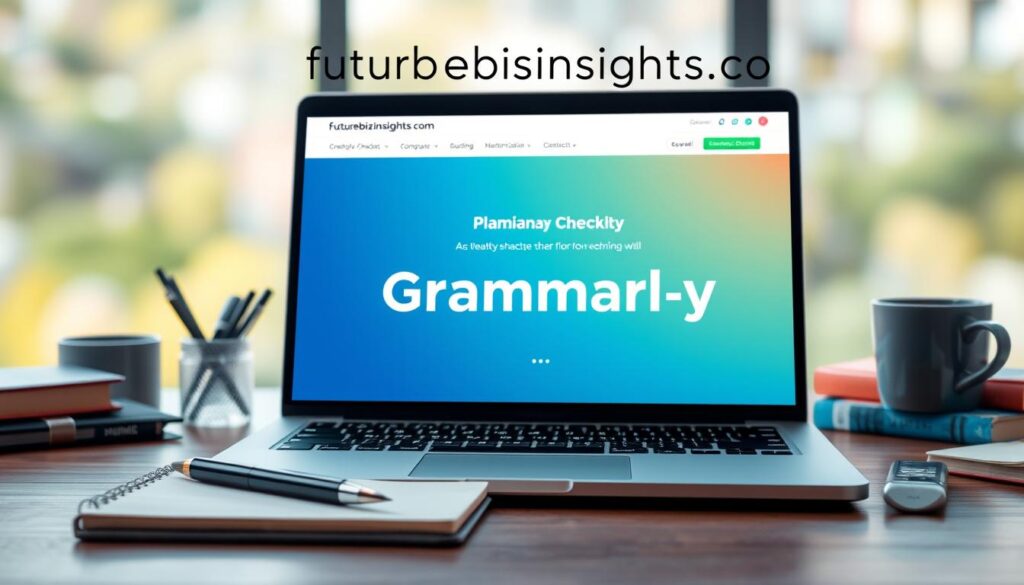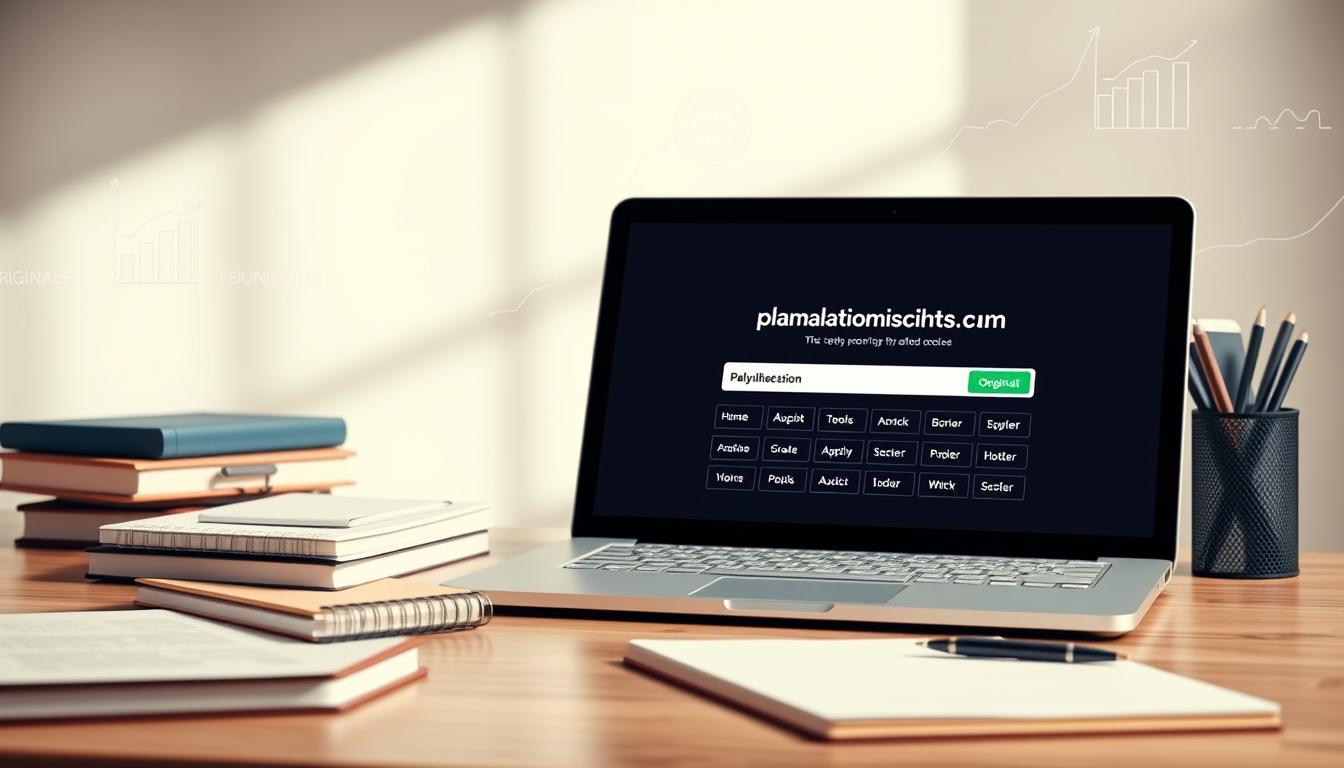Best Free Plagiarism Checker For Students & Teachers
In today’s world, finding information is easy. But this makes plagiarism a big problem in school and work. Students and teachers need tools to check for plagiarism. Luckily, there’s a free plagiarism checker that helps keep your work honest.
It’s changing how we think about writing and research. Find out about the top free plagiarism checker that’s making waves in education.
Key Takeaways
- Discover the top free plagiarism checker tools that cater to both students and teachers
- Understand the importance of plagiarism detection in maintaining academic integrity
- Explore the latest advancements in AI-powered plagiarism detection technology
- Learn how to effectively use a plagiarism checker to improve your writing and academic performance
- Discover how plagiarism checkers can be seamlessly integrated with learning management systems
Understanding Plagiarism Detection Tools in Education
Plagiarism detection tools are key in schools today. They help teachers keep student work honest. These tools use special methods to spot plagiarism, keeping student work real and schools’ reputations safe.
Types of Content Analysis Methods
These tools use smart algorithms to check student work. They look at:
- Lexical analysis, which checks the text’s unique words and style
- Structural analysis, which looks at how the content is organized
- Citation analysis, which checks if sources are correctly cited
- Fingerprinting, which finds similar content online
Why Educators Need Reliable Detection Tools
In today’s world, plagiarism is a big issue. Plagiarism detection tools help teachers find and stop cheating. This keeps academic integrity strong in schools.
Impact on Academic Integrity
Plagiarism detection tools have made a big difference. They help stop cheating and show if work is original. This creates a fair and honest learning environment. It lets educators see what students really know.
Top Features to Look for in a Plagiarism Checker
When picking a plagiarism checker, it’s important to look at several key features. These include plagiarism checker features, accuracy rates, source citation abilities, and detection limitations. These aspects are vital for keeping academic work honest and effective.
The accuracy rates of a plagiarism checker are a top priority. Good tools should find plagiarism well, even in small instances. They should check many sources, like websites and academic papers. This helps keep academic work honest and gives students useful feedback.
Another key feature is the tool’s source citation abilities. A good checker should not only find plagiarism but also give clear source citations. This helps users know where the content comes from and how to credit it. It also teaches students about the importance of proper citation.
It’s also important to know the detection limitations of a plagiarism checker. No tool is perfect, but knowing its limits helps users understand the results better. This knowledge helps users decide if the plagiarism detection is reliable.
| Feature | Description |
|---|---|
| Plagiarism Checker Features | Comprehensive content analysis, including websites, academic journals, and student submissions |
| Accuracy Rates | High detection rates for identifying even subtle instances of plagiarism |
| Source Citation | Detailed source citations to understand the origin of content and properly attribute it |
| Detection Limitations | Awareness of the tool’s boundaries and limitations to interpret results accurately |

By looking at these important features, students and teachers can choose a plagiarism checker wisely. They should pick a tool that offers accurate and reliable plagiarism detection. This supports learning and keeps academic work honest.
Most Popular Free Online Plagiarism Checkers
Students and teachers have many free tools to check for plagiarism. Grammarly, free Turnitin alternatives, and Small SEO Tools are among the most used. They help keep academic work original and authentic.
Grammarly Plagiarism Detection
Grammarly is a top choice for writing help. It also checks for plagiarism. It scans text against billions of web pages and academic sources. This is great for students to check their work before submitting it.
Turnitin Free Alternatives
Turnitin is popular but can be expensive for individuals. Luckily, there are free alternatives like PlagScan, Duplichecker, and Plagramme. They offer similar checks, helping users verify their work against online sources and academic databases.
Small SEO Tools Options
Small SEO Tools also offers a free plagiarism checker. It checks text for copied content. It’s perfect for quick checks on short assignments or blog posts.
| Plagiarism Checker | Key Features | Pricing |
|---|---|---|
| Grammarly |
|
Free and paid plans available |
| Turnitin Alternatives |
|
Free and paid plans available |
| Small SEO Tools |
|
Free and paid plans available |

Using these free tools, students and teachers can make sure their work is original. This improves the quality of their writing and research.
AI-Powered Plagiarism Detection Technology
The world of plagiarism detection has seen big changes thanks to AI. Tools like the ChatGPT plagiarism checker are now more advanced. They can find content duplicates more accurately.
These AI tools use natural language processing (NLP) and machine learning. They look at text in a way traditional checkers can’t. They can spot paraphrased content and similar structures.
AI has made plagiarism detection faster and more accurate. These tools quickly search through huge amounts of content. This saves teachers and students a lot of time.
| Feature | Conventional Plagiarism Checker | AI-Powered Plagiarism Checker |
|---|---|---|
| Detection Accuracy | Moderate | High |
| Paraphrasing Detection | Limited | Advanced |
| Scalability | Moderate | High |
| Contextual Analysis | Basic | Comprehensive |
AI plagiarism detection is getting better all the time. It’s key to keeping academic work honest. Teachers and students can use these tools to make their work better and more original.

Comparing Accuracy Rates Among Free Tools
Students and teachers need to know how well free plagiarism tools work. These tools help keep school work honest, but they’re not all the same.
Percentage Match Analysis
When checking for plagiarism, it’s important to see how well a tool finds matches. Plagiarism checker accuracy shows if a piece of work is original. Free tools vary in how well they show these matches.
Source Citation Capabilities
Good plagiarism tools also find where copied content comes from. Source citation helps figure out where ideas might have come from. This helps fix any mistakes and give credit where it’s due.
Detection Limitations
Even top free plagiarism detection tools have their flaws. They might miss certain types of copied content. Knowing these limits helps understand what the checks mean.

Understanding how plagiarism tools work helps choose the right one. This ensures school work stays honest and original.
How to Use Plagiarism Checker for Academic Writing
Keeping your work original and honest is key in academic writing. A good plagiarism checker tool is a great way to make sure your work is plagiarism-free. These tools are essential for students and teachers to maintain academic integrity.
Here are some tips for using a plagiarism checker effectively:
- Start early: Use the plagiarism checker while you’re writing, not just before you turn it in. This way, you can fix any plagiarism problems right away.
- Check multiple sections: Look at your work in parts, not just all at once. This helps you find and fix specific areas that might need work.
- Review the results carefully: Look closely at the plagiarism report. Understand the percentage of matches and the sources found. This will help you know what to change.
- Cite sources properly: If the checker finds parts that need citations, make sure to give credit where it’s due. Use the right citation style, like APA, MLA, or Chicago.
- Seek assistance if needed: If you’re not sure about using sources or how to use the checker, ask your teacher or a writing center expert for help.
By following these tips, you can use plagiarism checker tools to keep your writing original and honest.
Benefits of Regular Plagiarism Checking for Students
Using plagiarism checking tools can really help students. It boosts their writing originality, improves their academic performance, and helps them avoid unintentional plagiarism.
Improving Writing Originality
Students get to see how unique their writing is by using plagiarism tools. This helps them find and fix any copied content. They learn to write in their own words, making their work more original.
Academic Performance Enhancement
Regular plagiarism checks make writing better and can raise grades. Students show they understand their subjects better. This leads to higher grades and a good academic record.
Avoiding Unintentional Plagiarism
Even accidental plagiarism can hurt students. Using plagiarism tools helps them learn to cite sources right. This way, they avoid plagiarism and keep their work honest.
Students who regularly check for plagiarism do better in school. They improve their writing, grades, and keep their work honest. This sets them up for success in school.
Integration with Learning Management Systems
The education world is changing fast. Plagiarism checkers are now key in Learning Management Systems (LMS). This helps schools keep learning honest and helps teachers and students alike.
By linking plagiarism checkers with LMS like Blackboard, Canvas, and Moodle, things get easier. Teachers can upload assignments or check student work right in the LMS. This makes checking for plagiarism quick and easy, saving time and keeping work original.
This link also makes learning better for students. They get quick feedback on plagiarism, helping them learn to cite sources right. This boosts their writing and understanding of honesty in school. It’s good for the student and helps the school’s reputation too.














Post Comment